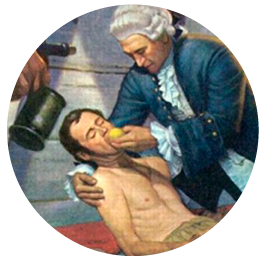In the world of medicine, each new drug or treatment that reaches our hands has gone through a rigorous series of tests and stages before being approved for marketing.
 Before a drug or treatment is brought to market, it must go through many stages of research.
Before a drug or treatment is brought to market, it must go through many stages of research.
A large part of this process involves clinical trials. A clinical trial is a study conducted in humans to evaluate the safety and efficacy of a new drug or treatment. These trials are necessary to ensure that patients receive safe and effective therapies.
What motivates the conduct of a new clinical trial?
Primarily, the search for advances in medicine and new treatment options. Clinical trials allow us to explore innovative treatments that could offer additional benefits or improve patient outcomes. They also help us better understand how drugs and/or treatments work in different populations and medical conditions.
The drug and treatment development process is long and complex, but it is essential to providing patients with safe and effective options. Participation in clinical trials is critical to the advancement of medicine.
 Patient need is what drives new research.
Patient need is what drives new research.
Over the past 10 years, significant achievements have been made in medicine through medical research and clinical trials. This translates into improvements in the quality of life of patients and in the prevention and treatment of diseases.
According to recent data, more than 80% of the drugs and treatments currently used in the market have undergone clinical trials before approval. This demonstrates their importance in evaluating the safety and efficacy of new therapies.
They have been instrumental in the development of more personalized and targeted treatments. For example, in recent years significant advances have been made in the field of precision medicine, which seeks to tailor treatments to the genetic and molecular characteristics of each patient.
 Each patient is treated with respect, empathy and seriousness.
Each patient is treated with respect, empathy and seriousness.
In addition, they have contributed to important advances in the fight against diseases such as cancer, cardiovascular diseases, neurological diseases and many others. Thanks to these studies, new drugs and innovative therapies have been discovered that have improved the survival and quality of life of patients.
This research gives us the opportunity to test new therapies, contribute to scientific progress and improve medical opportunities for all.

DW Magazine interviewed our CEO, Aldo Zambrano, in its August edition about Puerto Rico.
We are proud to be recognized as a protagonist for our work in clinical research. We are very happy to work in Puerto Rico and every day we strive for excellence.

DW Magazine interviewed our CEO, Aldo Zambrano, in its August edition about Puerto Rico.
We are proud to be recognized as a protagonist for our work in clinical research. We are very happy to work in Puerto Rico and every day we strive for excellence.

According to the WHO, childhood vaccines save the lives of four million children a year by providing protection against diseases such as diphtheria, measles, pneumonia, rotavirus, rubella, tetanus and polio.

According to the WHO, childhood vaccines save the lives of four million children a year by providing protection against diseases such as diphtheria, measles, pneumonia, rotavirus, rubella, tetanus and polio.

Clinical trials are what guarantee pharmacological safety and the improvement in the method allows drugs and therapies to be developed today with the highest ethical, scientific and quality guarantees.

Clinical trials are what guarantee pharmacological safety and the improvement in the method allows drugs and therapies to be developed today with the highest ethical, scientific and quality guarantees.

Days like today are what we work hard for, where a small victory means a big step for the community, especially for those suffering from diseases and for their families and friends who accompany them.

Days like today are what we work hard for, where a small victory means a big step for the community, especially for those suffering from diseases and for their families and friends who accompany them.

It is a commonly accepted myth that people are used as guinea pigs in medical experiments. In reality, this myth is false and no information has been found to validate this assumption.

It is a commonly accepted myth that people are used as guinea pigs in medical experiments. In reality, this myth is false and no information has been found to validate this assumption.

Clinical trials play a crucial role in the fight against cancer. These studies are fundamental to evaluate the effectiveness and safety of new treatments and therapies, as well as to improve cancer care in general.

Clinical trials play a crucial role in the fight against cancer. These studies are fundamental to evaluate the effectiveness and safety of new treatments and therapies, as well as to improve cancer care in general.

Based on the premise that medical research is the only tool that Science has to study new and better treatments for diseases, from BRCR – as a key link – we are committed to the task of providing the quantity and quality of information necessary for the peace of mind and safety of all the actors involved in the processes.

Based on the premise that medical research is the only tool that Science has to study new and better treatments for diseases, from BRCR – as a key link – we are committed to the task of providing the quantity and quality of information necessary for the peace of mind and safety of all the actors involved in the processes.
55 Weston Rd
Weston, FL 33326
Phone: +1 888 745 2727
8200 W Sunrise Blvd Suite D2
Plantation Fl 33332
Phone: +1 888 745 2727
Ashford Medical Center 29 Washington Street Suite 310 -San Juan, PR 00907
Phone: (787) 313 3307
Edif. XIMA, Via Samborondon Piso 1 Oficina 120
Phone +593 4 209 7403
Sur 132 No. 108 Suite 601-605 Col. Las Américas CP 01120
Phone: +52 5568632661
Ofident del CCCN, 200 m Norte y 25 m Este.
Barrio Dent, San Jose. Costa Rica
Phone: + 506 4800 0254 / +506 8867 2186